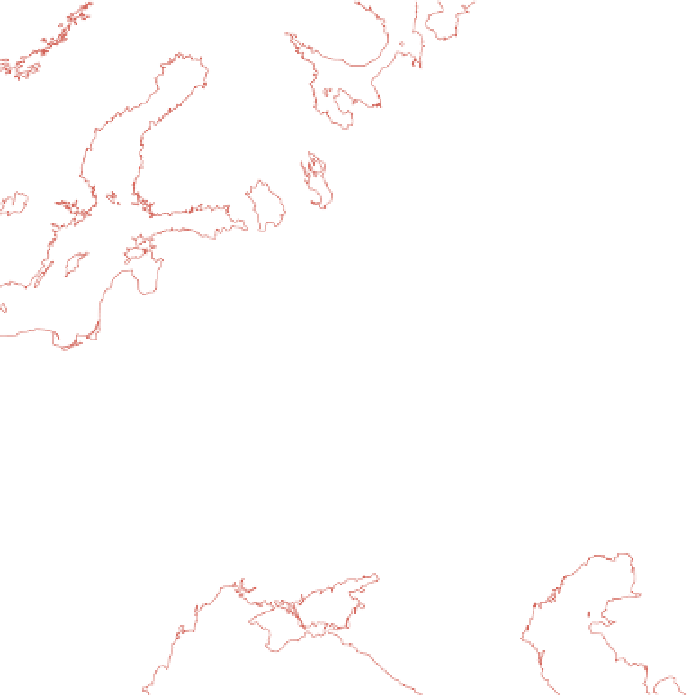Travel Reference
In-Depth Information
0
400 mi
Kola Peninsula
Kola Peninsula
0
400 km
White Sea
Arkangel'sk
Arkangel'sk
L. Onega
L. Ladoga
Helsinki
Tallinn
Helsinki
Tallinn
Stockholm
Stockholm
St. Petersburg
St. Petersburg
Perm'
Perm'
R
RUSSI
U
S
S
I
A
AN
N
ESTONIA
ESTONIA
Sverdlovsk
Sverdlovsk
P
PLAI
L
A
I
N
N
Yaroslavl
Yaroslavl
Riga
Riga
LATVIA
LATVIA
Nizhniy
Novgorod
Nizhniy
Novgorod
B
Kazan
Kazan
Ufa
Ufa
Kaliningrad
Kaliningrad
MOSCOW
MOSCOW
Vilnius
Vilnius
Minsk
Minsk
P O L A N D
POLAND
Samara
Samara
Warsaw
Warsaw
B E L A R U S
BELARUS
Łódź
Łódź
Orenburg
Orenburg
Voronezh
Voronezh
Saratov
Saratov
Kraków
Kraków
L'viv
L'viv
Kiev
Kiev
SLOVAKIA
SLOVAKIA
Kharkiv
Kharkiv
U
UKRAI NE
K
R
A
I
N
E
K A Z A K H S T A N
KAZAKHSTAN
Volgograd
Volgograd
Budapest
Budapest
Dnipropetrovs'k
Zaporiyhzhya
Dnipropetrovs'k
Zaporiyhzhya
HUNGARY
HUNGARY
Donets'k
Donets'k
Chișinău
Chișinău
Rostov-
on-Don
Rostov-
on-Don
R O M A N I A
ROMANIA
Astrakhan
Astrakhan
Odessa
Odessa
Belgrade
Belgrade
Sea of
Azov
Crimea
Crimea
SERBIA
SERBIA
Bucharest
Bucharest
Krasnodar
Krasnodar
Constanţa
Constanţa
Sofia
Sofia
BLACK SEA
B U L G A R I A
BULGARIA
Russia's next exceptional leader was
Catherine the Great
(1762-96), a German
princess who married into the Romanov family and conspired to oust her husband to
attain the throne. She greatly expanded Russia's territory to the east and south, and
her foreign policies won her and Russia great respect in the rest of Europe. Russia's
aristocracy came to speak French better than Russian.
Russia's love affair with France collapsed under Napoleon, who gave Russia its
biggest military challenge in centuries. The French made it into
Moscow in 1812
—
but only after the Russians had set fires in the city, stripped it bare, and fled, leaving
Napoleon's army without food and shelter on the eve of winter. The
Grande Armée
retreated, and the Russians' victorious drive into Paris 2 years later was immortalized
in poems, songs, and children's rhymes.
Much of Russia's 19th century was defined by
prerevolutionary struggle,
and the
czars sought to stamp out dissent even where it didn't exist. The 1825 Decembrist
uprising, led by reformist generals in the royal army, was quashed by czar Nicholas I,
who then bolstered the secret police. Czar Alexander II freed the serfs in 1861, but
society remained unequal and most of the population was still poor and uneducated.
Nicholas II—the last of the Romanov czars—assumed the throne in 1894 with few
plans for reform. He stifled an uprising of striking workers in January 1905 on what



































































